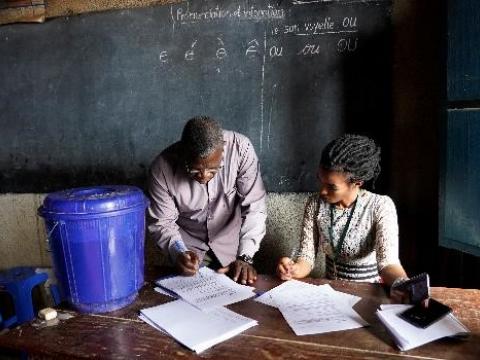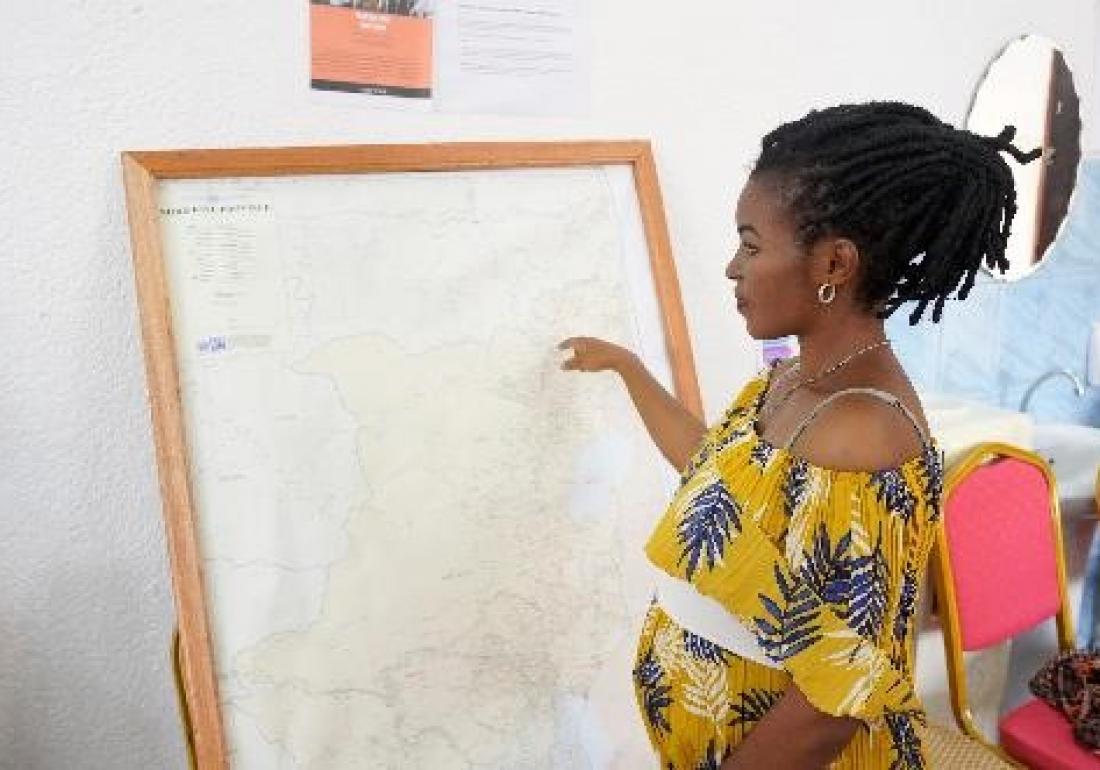"They were throwing stones at us": From resistance to acceptance

Martine launched her career in a place where many dare not work, at a time when being there felt like a double death trap. For her it was a blessing to find a job just 3-months after completing her studies. She worked to keep her community alive against Ebola, and now the Democratic Republic of Congo is close to being declared free of the second deadliest outbreak of the disease.
They were throwing stones at us. They were angry, and they wanted us to leave them alone. I never understood why the people we were helping to fight Ebola tried to harm us. It felt like war, and it made me fearful about going to the villages,” recalls Martine Milonde, who had just turned 20 when she joined World Vision’s Ebola response team in D.R Congo as a community mobiliser. Now she has to change to a new battle front. COVID-19. The story continues in her own words, as narrated to Response Communications Specialist, Geoffrey K. Denye.
We were helping people keep Ebola away through infection prevention communication, provision of soap, buckets, basins, water containers for general hygiene, in Beni, Mabalako, and Oicha. A lot was happening, like opportunists selling medicine, which they said cured Ebola. Some folk believed that if one goes to the treatment centre they would never come out alive, and we explained to them that it is better to give life a chance. This message is as relevant to our COVID-19 response as it was for Ebola.
At the start of the Ebola response, people were skeptical about all humanitarians, but once they started accepting the hygiene kits, a door of conversation opened for us to share that the deadly Ebola can be prevented and that it can also be treated, especially if diagnosed early. We also encouraged people to go for vaccination, and gradually the journey of change begun. I am optimistic that because of our past work, we may not face the same level of resistance in our interventions against the coronavirus.
There was a lot to do. I used to represent World Vision at the community engagement and risk communications meetings held at the Ebola Commission as well as speak to school children about preventing the disease and the importance of vaccination. It was also my job to work with pastors and health workers who were sharing life-saving messages through radio. When we had new staff and visitors I accompanied them to the vaccination centre. It was important that our new staff and visitors were protected this way. I accompanied several. I don’t remember the exact number, but I know that they were many? It was tough when I had to do all this in addition to organising my wedding last May!
A highlight for me was working with the children. They are quick to learn, and they swiftly embraced health-seeking behaviours of regularly washing their hands and maintaining the agreed social distance, unlike adults. Many times the adults made me feel like climbing the walls.
Ebola had killed one of our neighbours, and I never wanted any colleague, friend or child we serve to contract the disease.
In public, people found it easy to say Ebola was a lie, but when someone close died, they were petrified. I resolved to do more to help save my people, especially innocent children.
It is now a year and a half since I joined World Vision, and I still cherish my job. If we had not engaged communities to shift from resistance to advocates for change, I doubt that we would have been celebrating the discharge of the last patient from a treatment centre yet. Our work is going to ease the way communities embrace the fight against COVID-19.
During my short time at World Vision, I have had the opportunity to support projects funded by the German, Irish, UK and USA governments to help communities in my home town and those neighbouring overcome disease. I’m blessed to be able to apply lessons from my time as a student of Rural Development at the Institut Superieur de Developpement Rural.
My prize this international women’s day is to see communities getting back to normal. Women have played a big part in stopping Ebola. They have cared for the sick, they have protected their children, and they were early adopters of change regarding home hygiene and active change agents. We worked with the youth, women, motorbike riders, children, health workers, and together we can say our work has borne fruit.”
God is good to me, and I am thankful because my baby will be born in a Beni free of Ebola! Now I face COVID-19 with hope. I am confident that this too, shall end.

World Vision deployed an integrated and multi-sectoral approach including WASH, mental health and psychosocial support, community engagement, food assistance, infection prevention and risk communication to reach over a million people in the health zones of Beni, Butembo, Goma, Katwa, Kalunguta and Mabalako. Of this number, 379,775 are children below the age of 18 years.